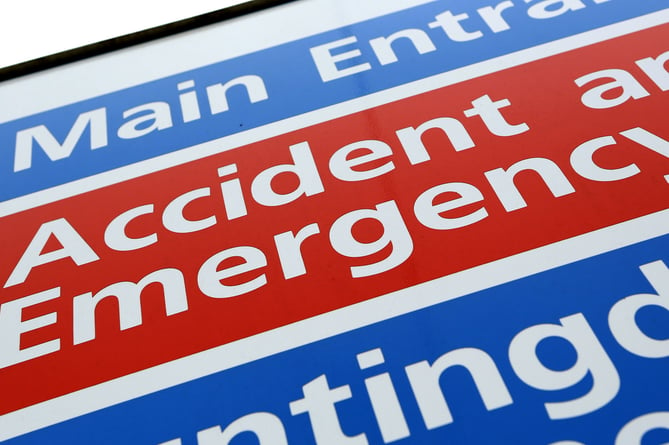Nearly all people who arrived at minor injury units at Gloucestershire Health and Care were seen within four hours last month, new figures show – surpassing the NHS recovery target.
The NHS standard is for 95% of patients to be seen within four hours. However, the Government announced a two-year plan to stabilise NHS services earlier this year which set a recovery target of 76% of patients being seen within four hours by March 2024.
NHS England figures show there were 5,709 visits to minor injury units at Gloucestershire Health and Care NHS Foundation Trust in November. Of them, 5,689 were seen within four hours – accounting for nearly all arrivals.
It means the trust met both the recovery target and the NHS standard.
Across England, 70% of patients were seen within four hours last month, down slightly from October. The figure hit a record low of 65% in December 2022.
The numbers also show 42,854 people waited over 12 hours in A&E departments – including specialty departments and minor injury units – from a decision to admit to actually being admitted, a slight fall from 45,655 in October.
None of these patients were at Gloucestershire Health and Care NHS Foundation Trust.
Nuffield Trust researcher, Cyril Lobont, said longer waits in A&E are a bellwether for winter pressures on the NHS.
He added: "Performance against four hour waits in A&E units remains significantly off target, with performance in November this year only a very slight improvement on last year (69%), which was the second worst month ever recorded bar December 2022.
"December has seen worse A&E waits than November in every year since 2010, so it is not out of the question that performance will deteriorate further."
NHS England said hospitals continue to see high demand with 2.2 million people attending A&E departments last month.
The overall number of attendances to minor injury units at Gloucestershire Health and Care NHS Foundation Trust in November was a slight drop from the 6,619 visits recorded during October, but 3% more than the 5,569 patients seen in November 2022.
Professor Sir Stephen Powis, NHS national medical director, said staff face a "challenging winter".
He said this includes the rising number of patients with flu, issues discharging medically fit patients due to a lack of social care capacity, and more industrial action planned ahead of Christmas.
"Our staff will once more be prioritising urgent and emergency care to protect patient safety and ensure those in life-saving emergencies can receive the best possible care," he added.
Speaking to broadcasters on Thursday, Prime Minister Rishi Sunak said: "We know that winter is always a challenging time for the NHS and that’s why this year as Prime Minister I made sure that we started planning with the NHS for winter earlier than we've ever done it."
Mr Sunak said extra funding towards expanding A&E departments, increasing the number of ambulances on the road, and improving the social care sector will free up capacity to treat urgent patients.




